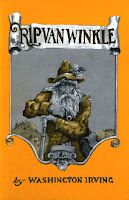Freedom of Speech

“By itself, the mere wording of the First Amendment did not guarantee freedom of speech, broad or narrow in construction. Few words have been susceptible to more varied interpretations. The real meaning of the amendment was determined through political conflict, and this conflict was not long in coming.” Starr P.77
Political conflict gave birth to the Republican Party when Jefferson and Madison formed their own opposing party. This affected the press in the same manner. Some printers were Federalists and agreed with the ruling administration others disagreed and had to fight an uphill battle to be recognized.
Federalists would eventually be responsible for giving the “Freedom of Speech” a necessary push in the right direction. The Federalists Sedition Act of 1798, a direct limitation on freedom of speech, gave them the power to imprison opposing Republican editors. This attack made the imprisoned editors seem like heroes in the eyes of the public and the strategy to limit the media would only backfire and help the opposition. Republican printers increased dramatically after this and created a network that would allow the Republican Party to take control in the 1800’s giving “Freedom of Speech” the power to protect the media from government control and show how the press can influence public opinion.
Labels: Freedom of Speech









